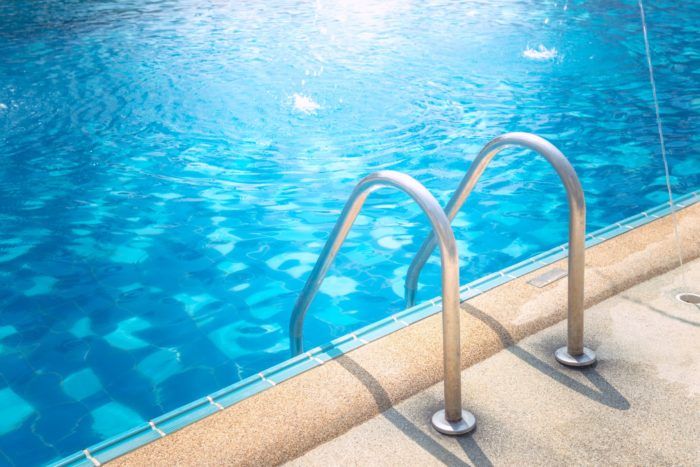
When it comes to pool sanitation, chlorine sanitation systems have been the most commonly used method. You may have heard of a saltwater system before or through your neighbor who just converted their pool recently. What is the difference? Is one better than the other? Read on to find out the best option for you!
Chlorine
Chlorine sanitation systems have been the most widely used method for maintaining pool sanitation for many years. It keeps a pool clean by breaking down bacteria through chemical reactions. Typical usage is on a weekly basis using liquid, granular, or tablet chlorine. You can learn how much to use by regularly testing the pool water pH levels or visiting your local pool professionals at our swimming pool stores.
Benefits
One of the biggest benefits is the low cost associated with a chlorine sanitation system. Most in-ground pools are built with one, they’re more affordable to install and maintenance tends to be easy once you get familiar.
Drawbacks
Chlorine can be difficult to keep balanced during the summer months. During extreme heat, chlorine can burn off very rapidly during the daytime. That’s why you might be told to deposit chlorine in the evenings so the pool can be sanitized and rebalanced overnight. It can also be more irritating to skin, eyes, hair, and clothing. Many people also find the smell unpleasant, although usually, the scent is stronger at a commercial pool vs. a residential pool. It’s also extremely important that chlorine gets stored properly.
Saltwater
Saltwater sanitation has become more and more popular in recent years. If you’ve ever gone swimming in a saltwater pool, you know the feeling of gliding through the smooth water. It feels like the ocean, but not quite as salty! Contrary to popular belief, saltwater pools still use chlorine. Saltwater sanitation works by adding salt to a salt cell, which then acts as a chlorine generator.
Benefits
Hands down, the best benefit of a saltwater system is the smooth, ever-so-slightly salted water. Saltwater is gentle on skin, eyes, hair, and clothing.
Drawbacks
Saltwater could potentially cause corrosion. It’s important that if you have a saltwater system you regularly check the pH level of the water and keep the water balanced. If you’re someone who likes to enjoy the pool in early Spring or late Fall/Winter, you should know that a salt system can’t run unless the pool water is around 65-70 degrees. The system can be jump-started by liquid chlorine or powder shock when the water temperature is still too low.
Ask Help From a Professional
Whether you’re having problems with your pool or just want to upgrade and protect it, you can call a knowledgeable and skilled professional from Mt Lake Pool, a leading repair and maintenance service provider for pool clients in Bucks County and the surrounding areas.
Mt Lake Pool also offers pool renovations in Montgomery County, PA, and offers top-quality and premium pool items and equipment at our swimming pool stores in Doylestown, PA.
Sit back and relax as we take care of your pool’s maintenance. Contact us today and schedule weekly or bi-weekly pool maintenance from a professional.
In all, it’s up to each person to determine which sanitation system works best for you. There are pros and cons to both and if you find yourself thinking about a salt water system, a pool can be easily converted!

